Doctorate in European Business
Doctorate in International Business Specialization in Europe (e-learning,
 )
)
The objectives of the Professional Doctorate in International Business (DIB) specialization in European Business (3 years, 180 ECTS) taught by EENI Global Business School are to train the doctoral student to be able to research on topics related to the European Business:
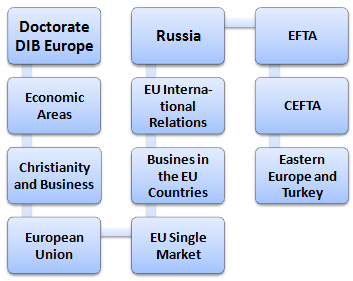
Thus, the Doctoral Student can apply creative solutions and take the appropriated business decisions related to the European Markets.
- Intra-European Trade
- European Economy
- Regional Integration Processes in Europe
- European Union
- United Kingdom (BREXIT)
- European Free Trade Association (EFTA)
- European Economic Area
- Central European Free Trade Agreement (CEFTA)
- Transport and Logistics in Europe
- Russia and the Orthodox Economic Area
- Interconnections between the European Markets..
 Enrol / Request for Information
Enrol / Request for Information

- Tuition Fees: EUR 3,000
- Duration: maximum of three calendar years Maximum of three calendar years since the formalization of the Enrollment up to the thesis deposit. If, after the three calendar years period the Doctoral Student has not deposited thesis, the Doctorate Programme Direction may authorise an extension of up to two years.
- Credits: 180

- Open Online Enrollment
- Download the Admission Form
- Download the syllabus of the Doctorate (PDF)
Intended for graduates and professionals who wish to continue their professional career in the field of international business with an emphasis in Europe.
The Doctorate is part of the category of the Doctorate in International Business (DIB), which has the dual aim of contributing to the knowledge and practice.
A Doctorate in European Business that fits your schedule and helps you to get a better job.
Language: 
- All the subjects offered are available in English
- Approximately 60% of the subjects are also available in French, Spanish and Portuguese
- Thus, the Doctoral Student can perform this doctorate entirely in English (or French, Spanish or Portuguese)
- The student should have a sufficient level to study the subjects in these languages
 Doctorat en Affaires en Europe
Doctorat en Affaires en Europe
 Doctorado en Negocios en Europa
Doctorado en Negocios en Europa  Doutoramento em Negócios na Europa.
Doutoramento em Negócios na Europa.
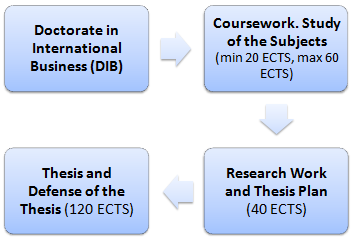
- Coursework. Study of the Subjects (minimum 20 ECTS, maximum 60 ECTS)
- Research Work and Thesis Plan (40 ECTS)
- Thesis and Thesis Defense (120 ECTS)
Related Subjects to Europe offered by EENI
EENI provides a range of Related Subjects to Europe (more than 150 ECTS credits).
- The Doctoral Student can select the most suitable subjects depending on the thesis
- The minimum ECTS to be selected is 20, maximum is 60
- The Doctoral Student selects the subjects once formalized the enrollment
To facilitate the subject selection, these are organized into several blocks:
- European (PDF) [2], Orthodox (PDF) [2] and Eurasian (PDF) [2] Economic Areas
- Christianity (Catholicism, Protestantism, Orthodoxy) and Business in Europe (PDF) (structure) [6]
- European Union (PDF) (structure) [3]
- United Kingdom (BREXIT)
- Single Market of the EU (PDF) (structure) [4]
- Business in the markets of the EU [37]
- The EU International Relations (PDF) (structure) (agreements) [8]
- Business in Russia (PDF) (structure) [12]
- Business in the EFTA Countries (PDF) (structure) [9]
- Business in the Countries of the CEFTA (PDF) (structure) [9]
- Business in the Eastern Europe Countries and Turkey (PDF) (structure) [7]
Notes:
- Below you can find detailed information about the subjects of the Doctorate
- Brackets [] show ECTS credits
- PDF: download the index and objectives of the unit or module in PDF format
Research Areas of the Doctorate in European Business:
- Minimum ECTS to be selected is 20, maximum is 60
- The Doctoral Student should select the most appropriate subjects for his thesis
- The Doctoral Student can use any possible subject combination
Analyzed Markets in the Doctorate in European Business:
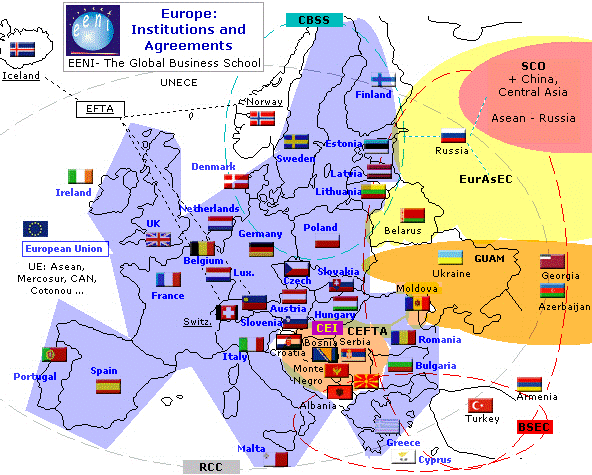
Module - European Economic Areas (6 ECTS)
- European Economic Area of the Western Civilization [2] (PDF)
- Orthodox Economic Area (PDF)
- Central Eurasian Economic Area [2] (PDF)
European Institutions:
- UNECE
- Regional Cooperation Council (RCC)
- Organization for Security and Cooperation in Europe (OSCE)
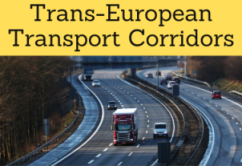
Module - Trans-European Corridors.
- Atlantic Corridor
- Baltic-Adriatic Corridor
- North Sea-Baltic Corridor
- North Sea-Mediterranean Corridor
- Mediterranean Transport Corridor
- Eastern Europe-Eastern Mediterranean Transport Corridor
- Scandinavian-Mediterranean Transport Corridor
- Rhine-Alpine Transport Corridor
- Rhine-Danube Transport Corridor
- Strasbourg-Danube Transport Corridor
- Pan-European Corridor II
- Pan-European Corridor IX


Module - Christianity (Catholicism, Protestantism, Orthodoxy) and Business in Europe [6]
- Christianity and Business (PDF)
- Catholicism
- Anglican Church
- Protestantism
- Christianity in Europe
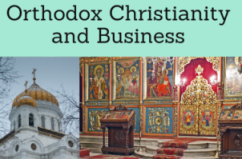
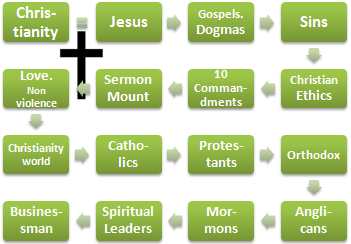
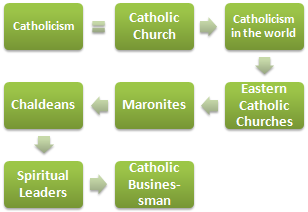
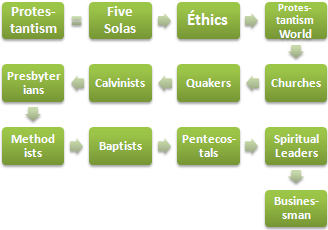
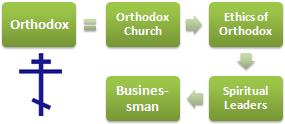
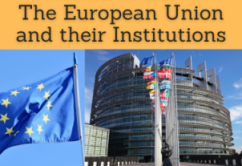
Module - EU and their institutions (PDF) (3 ECTS).
1- Introduction to the EU
- Aims, organization and functioning of the EU
- Principles of the EU Law
- Economy of the EU
- Economic impact of the BREXIT
- The EU Structural and Investment Funds
2- EU Institutions:
- European Council
- European Commission
- European Parliament
- EIB
- European Economic and Social Committee
- Decentralized EU Agencies
- Court of Auditors
- Court of Justice
- European Committee of the Regions
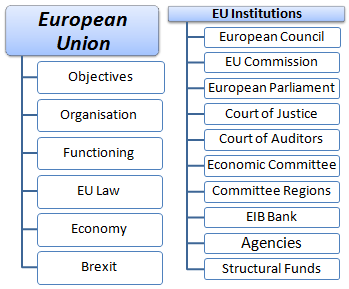
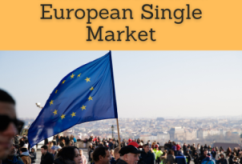
Module - Single Market of the EU (PDF) (4 ECTS).
- European Single Market
- The EU Services Directive
- Digital Single Market
- Taxation in the European Single Market
- Economic and Monetary Union
- European Central Bank
- The EU Customs Union
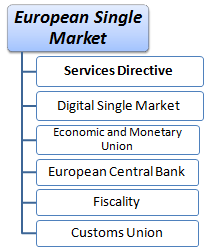
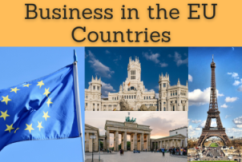
Module - Business in the markets of the EU (37 ECTS).
Note: the student can select any combination of the countries of the EU
1. Economic Profile of the EU member states (PDF).
2. The five largest economies of the EU
- Germany: the leading European economy and the political leader of the EU
- France: the third European economy, the importance of the Francophonie
- Italy: the fourth largest EU economy
- Spain: the fifth European economy, a gateway to Latin America (Iberian America)
3. EU Scandinavian countries:
- Sweden: a service economy based on the technological innovation
- Finland: one of the highest welfare system in the world
4. Other continental Countries of the EU
- Austria: one of the richest nations in the world
- Belgium: Brussels, the political centre of the EU
- Denmark: one of the least corrupt countries
- Netherlands: the Port of Rotterdam, the largest in the EU
- Luxembourg: one of the main financial centers in Europe
5. The case of Portugal: a service-oriented economy, the connection with the Lusophony.
6. The case of Greece: the country with the largest merchant marine in the world
7. EU Island countries:
- Ireland: the Celtic Tiger
- Cyprus: the world's fourth largest ocean fleet
- Malta: a strategic position between Europe and the MENA Region (North of Africa, Middle East)
8. Countries of the EU that belonged to the former Soviet Union
- Bulgaria: an economy based on the metallurgy
- Slovakia: an automotive economic power
- Hungary: the largest mobile phone producer in the EU
- Czech Republic: a highly exporting Central European country
- Poland: the largest market in Central Europe
- Romania: one of the largest agricultural products exporter of the EU
9. Countries of the EU of the former Yugoslavia:
10. The Baltic Tigers of the EU
- Estonia: the most digital country of the EU
- Latvia: a high human development country
- Lithuania: one of the countries of the EU with the largest economic growth
11. United Kingdom: How will the BREXIT affect the second EU economy?
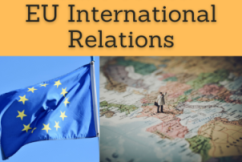
Module - International Economic Relations of the EU (PDF) (16 ECTS).
1- EU Foreign Policy
- European foreign policy
- European External Action Service
- EU Enlargement
- Neighbourhood Policy
- Euro-Mediterranean Partnership
- Eastern Partnership
- EU-South Caucasus
- EU-Western Balkans
- Black Sea Synergy
- GSP
- Foreign Trade of the EU
- ...
- The EU Strategic Partners: U.S., Canada, India, China, Korea
- Agreements with Africa: EU-Africa Strategic Partnership, Algeria, Morocco, Tunisia, Egypt, South Africa, Ivory Coast, Agadir Agreement.
- Agreements with America: Central America, Chile, MERCOSUR, Mexico, Andean Countries, CARIFORUM
- Agreements with the Arab Countries: Jordan, Lebanon, Gulf Cooperation Council.
- Agreements with Asia: the ASEAN, Singapore, Vietnam, Kazakhstan, Papua..
- Agreements with Europe: EFTA, Moldova, Russia, Ukraine, Georgia, Turkey (Customs Union)..
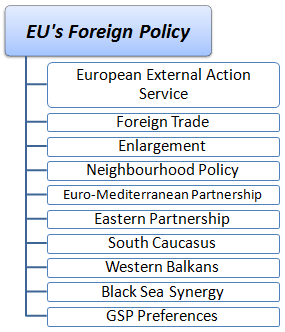
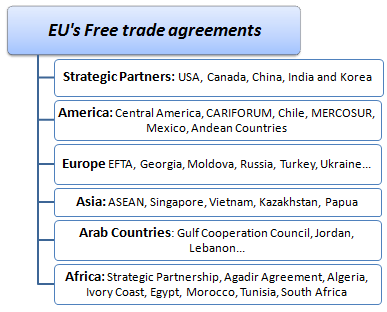
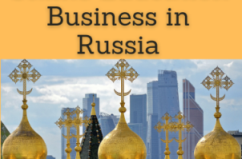
Module - Business in Russia (PDF) (12 ECTS)
- The Russian Federation
- Russian economy
- Investment in Russia
- Russian payment system
- Ports of Russia
- Analysis of the Russian companies and entrepreneurs: Vladimir Potanin, Elena Baturina, Alexander Lebedev
International Relations of Russia
- Belarus-Russia (Union State)
- Eurasian Economic Union
- APEC
- Shanghai Cooperation Organization (SCO)
- Commonwealth of Independent States (CIS)
- EU-Russia
- Andean Community- Russia
- Africa-BRICS Countries (Russia is a member of the BRICS)
- Russia has Trade Agreements with Armenia, Belarus, Azerbaijan, Georgia, Kyrgyzstan, Serbia, Moldova, Ukraine and New Zealand as well as a trade agreement with Cameroon
- Russia-Belarus-Kazakhstan Agreement
- Russia-Vietnam Customs Union
- ASEAN-Russia Business Forum
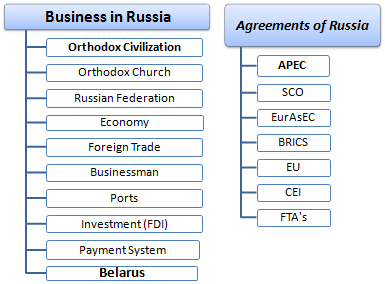
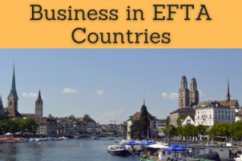
Business in the EFTA States (PDF) (9 ECTS).
- EFTA
- Iceland: post-crisis economic recovery
- Liechtenstein: a tax haven
- Norway: the third World oil exporter
- Switzerland: the second most competitive economy in the world
- European Economic Area with the EU
- EFTA Free Trade Agreements with Colombia, Chile, Mexico, India, Peru..
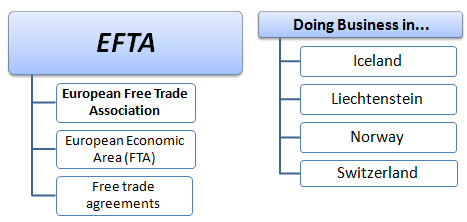
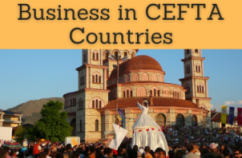
Module - Business in the CEFTA Countries (PDF) (9 ECTS).
- Central European Free Trade Agreement (CEFTA)
- Albania: the third world chrome producer
- Bosnia and Herzegovina: towards a market economy
- Kosovo
- Macedonia: an important economic growth
- Moldova: one of the poorest European Countries
- Montenegro: the importance of the aluminum
- Serbia: an emerging country in Central Europe
- Economic Relations of the countries of the Central European Free Trade Agreement with the EU
- Trade Agreements related to the EFTA Countries
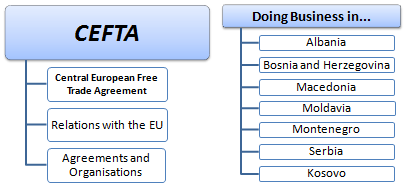
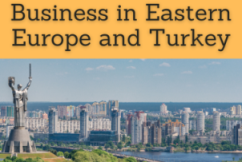
Module - Business in the Eastern Europe Countries and Turkey (PDF) (7 ECTS)
- Armenia: major economic reforms
- Azerbaijan: an economy based on the oil production
- Belarus: the strategic importance of the Union State with Russia
- Georgia: significant economic growth
- Ukraine: an emerging country, conflict with Russia
- Turkey: the Customs Union with the EU. A key player in the region
- International Relations of the Eastern Europe Countries with the EU
Economic Organizations and trade agreements in the region:
- Trade Agreements of the Eastern Europe Countries and Turkey
- Economic Cooperation Organization (ECO)
- Regional Organization for Democracy and Economic Development (GUAM)
- Commonwealth of Independent States (CIS)
- Black Sea Economic Cooperation (BSEC)
- Eurasian Economic Union
- Cooperation Council of Turkic Speaking States
- Council of the Baltic Sea States
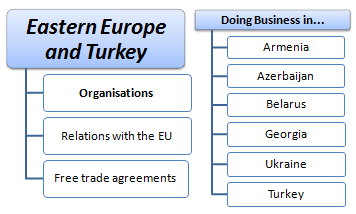
To be admitted to the Doctorate, the students must have earned a Master's Degree.
- If you do not have a Master's Degree you can enroll in the Master in International Business. You will be exempt from the final Master's Thesis and you will be able to access the doctorate by going directly to the doctoral thesis preparation (you should not take the complement teachings of the doctorate)
You must send by e-mail a certified photocopy of your diploma of master. This is necessary for the issuance of your diploma and not to enroll.

The students who pass the assessments and thesis will receive the Diploma of Professional Doctorate in International Business (DIB) specialization in European Business issued by EENI Global Business School.
The Diploma of Professional Doctorate is awarded after assessing:
- Level of participation of the Doctoral Student in the Doctoral Subjects
- Research Work
- Thesis Defense
Once defended and overcame the thesis, the Doctoral Student will receive its diploma.
EENI European Students
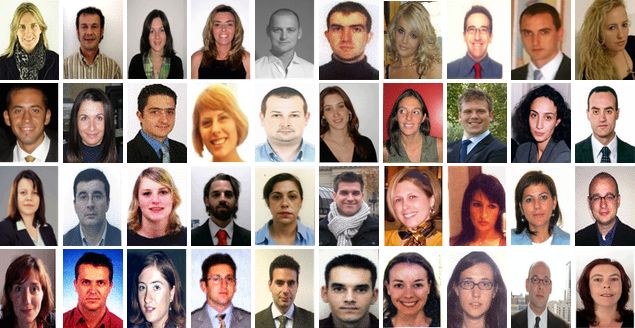
(c) EENI Global Business School (1995-2024)
We do not use cookies
Top of this page



